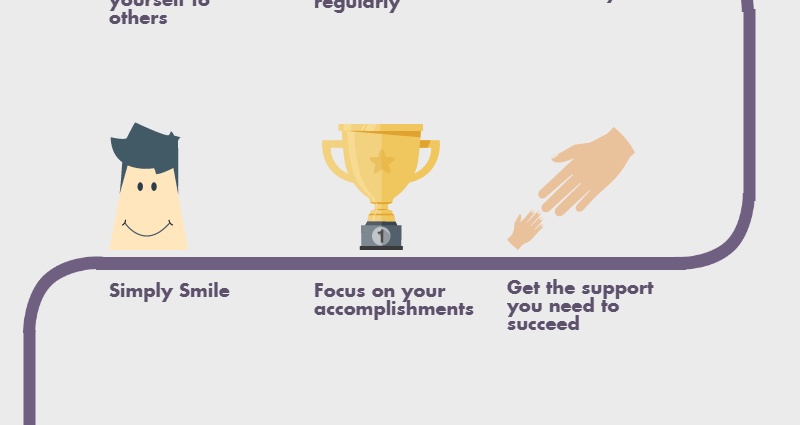Contents
How we treat ourselves affects how we feel. Self-abasement, excessive self-criticism can lead to depression, nervous breakdowns and even physical illness. Check: Are you doing for yourself what you would do for your best friend?
We all deserve to be treated with understanding and respect. This is what we expect from others. But you should start with yourself! Oddly enough, quite often we treat (and talk) with ourselves in a way that we would never do with relatives, friends, and even acquaintances: ruthlessly and critically.
It is easier for many to admit their mistakes than their merits. And it’s not safe: low self-esteem creates prerequisites for depression and anxiety disorders. Isn’t it time to change your attitude towards yourself for the better?
1. Consider reality
We cannot change what we do not see. Self-observation is a necessary precondition for action. If we want to stop devaluing ourselves, we must understand how we do it. It is easy to take for an objective assessment the opinion of that inner voice that belittles our merits and points out shortcomings.
However, this voice is just an expression of low self-esteem. And it has to do with anything but reality. By learning to recognize and correctly evaluate these statements, you can change the way you feel about yourself.
2. Talk About Yourself Respectfully
Constantly downplaying your talents and accomplishments, talking disparagingly about yourself, avoiding any attention, cultivating modesty… This is a great way to maintain low self-esteem. Words matter, they deeply affect our perception and the impression we make on others.
Therefore, start talking about yourself and your affairs, avoiding anything that portrays you as a victim or chronic loser. Accept compliments without making excuses or denying merit. Acknowledge the authorship of good ideas.
Anything written about forgiveness usually refers to others first. But it’s equally important to learn to forgive yourself.
Congratulate yourself on your success. Watch out for the habit of thinking badly about yourself and say “Lie!” to such thoughts. every time they come up. Displace them by thinking about your own favorable image.
3. Discover the star in you
Albert Einstein believed that everyone is a genius in their field. Singing, cooking, running, writing books, supporting others… When we show talent, we unleash the radiance of the star that lives within us and radiates trust, charm, confidence and knowledge.
The more we become aware of our special talent, the more we express it—usually without difficulty, because it is pleasurable—and the inner zone of confidence expands. Determine what your real talent is and set aside time in your schedule to devote to it.
4. Forgive yourself
Anything written about forgiveness usually refers to others first. But it is equally important to learn to forgive yourself. By doing this, we restore our worth in our own eyes and feel more comfortable under the gaze of others.
Recall an event that makes you regret. Relive it in memory along with the context, including the place, time, environment, and your own feelings and state of mind at the time. Separate what can be attributed to circumstances and other participants in the events from what really depended on you.
Draw the necessary conclusions from this for the future, and then forgive yourself from the bottom of your heart – as sincerely as you would forgive someone you care about. You did what you could at that moment, and there is no need to carry the burden of the past.
5. Help others
Feeling needed is extremely beneficial for boosting self-esteem. Take temporary responsibility for the well-being of those who find themselves in a difficult situation, volunteer or share experience, transfer knowledge …
It is beneficial for self-esteem to recognize that our active empathy, altruism, words, and presence itself soothe and help others. Especially if we do not underestimate the value of our actions and do not act from the position of a “devoted servant”. Offer help, time, and advice as an equal, simply, and with dignity.
6. Go in for sports
A huge number of studies have confirmed the link between self-esteem and exercise. Running, brisk walking, swimming, equestrianism, ice skating, dancing, boxing… All of these bring us back into the body and help us feel agile and strong.
The Self is the dense, concentrated part of our being, the heart of humanity.
Self-esteem rises, and we feel able to respect our territory. Not to mention that playing sports regulates the emotional state and improves the quality of sleep. And then we feel better “in our own skin” and become more confident.
7. Appreciate your essence
There are facts, results (errors and successes), circumstances, life events – and there is something that is much deeper. There is surface and there is depth. There is “I” (temporary, incomplete, subject to the influence of circumstances), and there is “Self”: according to Jung, this is the sum of all our particular manifestations.
The Self is the dense, concentrated part of our being, the heart of humanity. This is its value, so you need to take care of it and respect it. To despise, neglect and devalue one’s essence would be to mistreat one’s human nature. Start listening to your needs, be interested in desires, respect them, and then others will respect them.
In preparing the article, materials were used by Allison Abrams, a psychotherapist, author of the “Caring for Self-Compassion” column on psychologytoday.com, and Glenn Shiraldi, a psychologist, author of Ten Solutions for Improving Self-Esteem (Dix Solutions pour accroître l’estime de soi, Broquet , 2009).










